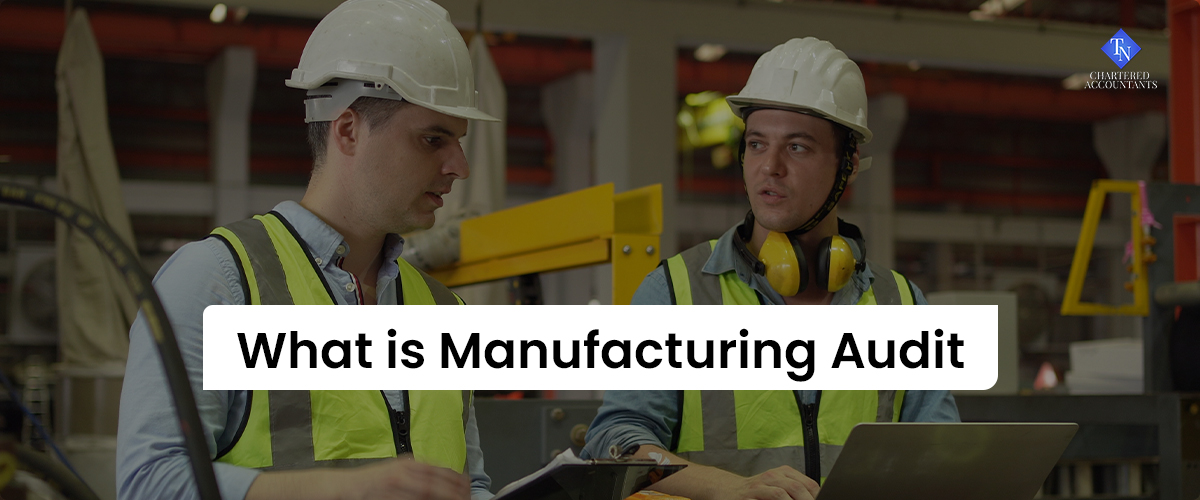
Manufacturing audits ensure efficiency, compliance, and quality in production facilities. They identify risks, improve workflows, and help businesses meet industry standards. A well-executed manufacturing company audit prevents costly errors and strengthens operational performance. This guide explores key aspects of audits, their importance, and best practices for implementation.
Manufacturing Audits: A Brief Intro
A manufacturing company audit examines processes, systems, and compliance within a production facility. It confirms that operations meet industry regulations, safety protocols, and quality standards. Regular audits sharpen efficiency, eliminate risks, and enhance product reliability.
The Importance of Audits for Manufacturing Companies
1. Strengthening Compliance and Reducing Risks
Manufacturing companies must follow strict industry regulations. A structured audit of a manufacturing company pinpoints compliance gaps, preventing costly penalties and legal troubles.
2. Elevating Product Quality
Audits inspect production methods to ensure consistent quality. By identifying defects early, manufacturers prevent faulty products from reaching customers.
3. Refining Operational Efficiency
An internal audit of manufacturing operations uncovers inefficient workflows, mismanaged resources, and ineffective machinery. Fixing these flaws boosts productivity.
4. Controlling Costs
Audits expose areas where raw materials, energy, and labour are misused. Reducing waste and optimising processes help manufacturers save money without compromising quality.
Key Checklists for Manufacturing Audits
A well-structured audit examines all critical areas of manufacturing. Key focus points include:
1. Assessing Production Processes
- Evaluating raw material sourcing and usage
- Identifying workflow disruptions
- Reviewing machinery performance and maintenance schedules
2. Examining Quality Control
- Confirming testing procedures are effective
- Analysing defect rates and corrective actions
- Checking compliance with ISO or other industry standards
3. Ensuring Compliance and Safety
- Verifying adherence to legal and industry regulations
- Assessing workplace safety measures
- Reviewing employee training records
4. Evaluating Inventory and Supply Chain
- Monitoring stock levels and material flow
- Measuring supplier reliability
- Analysing distribution efficiency
5. Reviewing Financial Health
- Scrutinising production costs
- Spotting waste and inefficiencies
- Assessing budget allocations and forecasting accuracy
Different Types of Production Audits
1. Compliance Audits
These audits verify that manufacturers meet industry, environmental, and legal standards. Non-compliance can lead to severe penalties or operational shutdowns.
2. Quality Audits
Quality audits measure consistency in production and highlight areas for improvement. They ensure that defective products do not reach consumers.
3. Process Audits
This audit examines production workflows, exposing inefficiencies and uncovering opportunities for refinement.
4. Supplier Audits
Manufacturers rely on suppliers for raw materials. A supplier audit evaluates their quality, dependability, and ethical practices to prevent production setbacks.
5. Internal Audits
An internal audit of manufacturing operations assesses internal risks, evaluates compliance, and ensures continuous improvement.
How Production or Factory Audits Are Performed
1. Defining Audit Goals
Before an audit begins, auditors establish objectives, review past reports, and collect essential documents.
2. Conducting On-Site Inspections
Auditors visit the factory, analyse production lines, observe workflows, and speak with employees. They inspect equipment, raw materials, and finished goods.
3. Gathering and Analysing Data
Performance data, defect records, and compliance reports are examined. Auditors compare findings with industry benchmarks.
4. Reporting Findings and Providing Solutions
A detailed report outlines inefficiencies, risks, and recommended improvements. Manufacturers use these insights to refine operations.
5. Following Up for Sustained Improvement
Regular follow-ups confirm that recommended changes take effect. Ongoing monitoring helps maintain progress.
Core Components of a Standard Manufacturing Audit
A manufacturing company audit focuses on several core areas:
1. Examining Production Processes
Auditors evaluate how raw materials transform into finished goods, identifying waste and inefficiencies.
2. Inspecting Machinery and Technology
They assess equipment performance, maintenance schedules, and technological upgrades to prevent costly breakdowns.
3. Evaluating Employee Performance
Workers’ skills, training levels, and adherence to safety protocols determine efficiency. Well-trained employees improve overall productivity.
4. Reviewing Safety and Compliance
Auditors inspect workplace safety measures, hazard control, and regulatory compliance to prevent accidents and legal risks.
5. Assessing Financial Impact
They analyse cost structures, material usage, and waste to identify areas where money can be saved.
Best Practices for Conducting Manufacturing Audits
1. Define Clear Audit Objectives
Every audit should have a specific goal, whether improving compliance, reducing costs, or enhancing quality. Clear objectives keep evaluations focused.
2. Use Detailed Checklists
Checklists ensure no critical aspect of a manufacturing company audit is overlooked.
3. Involve Key Team Members
Production managers, quality control experts, and financial analysts should contribute to the audit process. Their insights strengthen audit findings.
4. Rely on Data for Decision-Making
Performance metrics, quality trends, and operational costs provide measurable insights that drive improvements.
5. Maintain Regular Audits
Consistent assessments help manufacturers track progress, identify recurring problems, and sustain improvements.
When Is a Manufacturing Process Audit Necessary?
Manufacturers should schedule audits when:
1. Preparing for Production Changes
Introducing new equipment, raw materials, or manufacturing techniques requires a manufacturing company audit to ensure smooth implementation.
2. Facing Quality Concerns
Rising defect rates or customer complaints signal the need for a quality audit.
3. Meeting Regulatory Standards
Industries with strict legal requirements must conduct audits to avoid non-compliance penalties.
4. Identifying Cost Inefficiencies
When production expenses rise unexpectedly, an audit helps uncover unnecessary costs and prevent waste.
5. Assessing Supplier Reliability
Regular audits confirm that suppliers maintain quality, ethical standards, and timely deliveries.
Simplify Manufacturing and Factory Audits With TNPL
At TNPL, we help manufacturers conduct precise, data-driven audits. Our expertise enhances efficiency, compliance, and quality control. Whether you need an internal audit of manufacturing processes or a full-scale factory assessment, we provide tailored solutions.
Why Choose TNPL?
- Comprehensive Audits – We assess compliance, quality, and operational performance.
- Industry Expertise – Our auditors understand manufacturing challenges and provide effective solutions.
- Customised Approach – We design audit strategies that align with your production needs.
- Ongoing Support – We assist with post-audit implementation for long-term improvements.
Regular audits sharpen quality, efficiency, and compliance. Partner with TNPL to simplify your manufacturing company audit and optimise operations.
For expert audit solutions, contact TNPL today!


